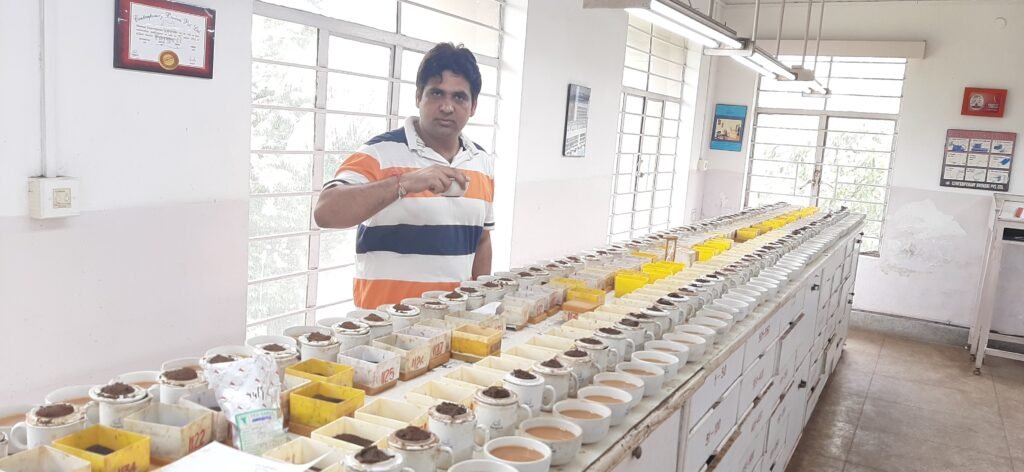Tea, a beverage that has transcended cultures and centuries, has woven a tapestry of connections that extend beyond the cup. At the heart of this intricate network are tea associations, organizations that unite tea enthusiasts, professionals, and industry stakeholders in a collective pursuit of knowledge, sustainability, and camaraderie. In this article, we explore the dynamic landscape of tea associations, their pivotal role in shaping the tea industry, and the invaluable resources they offer to both connoisseurs and novices alike. Tea Associations: Nurturing a Global Tea Community.

Introduction
Tea associations serve as bridges that connect tea lovers, professionals, and stakeholders, fostering a sense of unity within the tea community.
The Evolution of Tea Associations
Origins and Historical Significance
Tea associations trace their roots back to ancient times, when they played a vital role in trade, cultural exchange, and knowledge dissemination.
Modern-Day Tea Organizations
Contemporary tea associations continue the legacy of their predecessors, catering to a global audience with diverse interests and expertise.
Promoting Knowledge and Education
Conferences, Seminars, and Workshops
Tea associations organize events that bring together experts and enthusiasts, facilitating the exchange of ideas, research findings, and industry trends.
Training Programs for Industry Professionals
Education remains a cornerstone, with tea associations offering specialized courses for tea sommeliers, tasters, and industry professionals.
Safeguarding Quality and Standards
Certifications and Best Practices
Tea associations establish guidelines and certifications that uphold quality standards, ensuring that tea lovers enjoy authentic and safe products.
Role in Ensuring Authenticity
In an era of counterfeit products, tea associations play a pivotal role in certifying the origin, quality, and authenticity of teas.
Advancing Sustainability Practices
Environmental Initiatives and Research
Tea associations take a proactive stance on sustainability, funding research and projects that promote environmentally friendly practices.
Supporting Ethical and Sustainable Sourcing
By advocating fair trade and ethical sourcing, tea association contribute to the welfare of tea-growing communities and the planet.
Fostering Global Connections
Networking Events and Collaborations
Tea associations organize networking events, creating opportunities for tea enthusiasts and industry professionals to connect and collaborate.
Strengthening Cross-Cultural Bonds
Global tea associations cultivate mutual respect and understanding among diverse cultures through shared appreciation for tea.
Advocating for the Tea Industry
Policy Influence and Representation
Tea associations act as advocates, voicing concerns and influencing policies that impact the tea industry’s growth and sustainability.
Addressing Industry Challenges
Associations tackle challenges like climate change, labor issues, and market dynamics by facilitating discussions and implementing solutions.
Innovations and Emerging Trends
Digital Platforms and Online Communities
Tea Alliance embrace digitalization, engaging tea lovers through social media, webinars, and virtual events.
Utilizing Technology for Outreach
Association leverage technology to reach wider audiences, making tea education and resources more accessible than ever before.
Challenges and Opportunities
Balancing Tradition and Modernity
Tea Alliance navigate the delicate balance between preserving tea traditions and embracing innovation.
Adapting to Changing Consumer Preferences
Alliance respond to evolving consumer demands by promoting new tea experiences while honoring traditional brewing methods.
Conclusion
Tea Alliance stand as pillars of unity and progress, enriching the tea community with knowledge, camaraderie, and sustainable practices.
FAQs
- Who can benefit from joining a tea association?
- Tea enthusiasts, professionals, tea farmers, traders, and anyone passionate about tea can benefit from joining tea associations.
- What role do tea association play in sustainability?
- Tea associations drive sustainability by promoting ethical sourcing, environmental initiatives, and sustainable farming practices.
- How can tea association influence policies?
- Tea associations have a collective voice that can advocate for policy changes by engaging with governments and industry stakeholders.
- Are online communities replacing traditional tea gatherings?
- Online communities complement traditional gatherings, offering a global platform for sharing knowledge and fostering connections.
- How do tea association contribute to cultural exchange?
- Tea associations organize events that bring together individuals from diverse cultures, fostering cross-cultural understanding and appreciation.
Contact Details:- 9499347308



